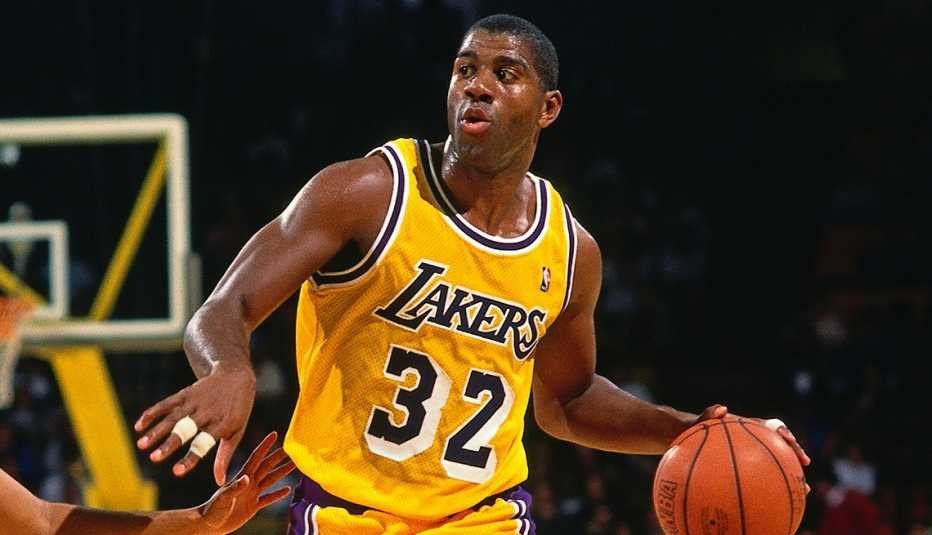Do You Believe in Magic?
I recently binge-watched a show on Max (formerly HBO) called Winning Time: The Rise of the Lakers Dynasty. It depicts a dramatized account of the LA Lakers basketball team and their successful run during the 1980s. The fortunes of the team (and National Basketball Association) quickly turned around after Dr. Jerry Buss, owner of the Lakers, selected Earvin “Magic” Johnson in the 1979 NBA Draft. During Johnson’s 13-year career, the Lakers proceeded to win five NBA championships. And Johnson is credited, along with Larry Bird, with increasing the popularity of (perhaps even saving) what was a waning sport and league at the time.
Johnson was an unconventional player and pick. He was 6′ 9″ coming out of college, played point guard, and did not match the prototypical point guard (under 6’4″ and quicker) of the NBA. And the Lakers already had a soon-to-be all-star point guard in Norm Nixon. In fact, Johnson was relegated to playing the forward position during the early part of his career because even the Lakers coach, Jerry (The Logo) West, did not believe he could play point guard and adamantly opposed drafting Johnson in the first place.
He is also an example and cautionary tale about overlooking the equivalent of recruiting and hiring for pure talent and athleticism rather than a specific functional role/position.
Despite conventional wisdom and the prevailing advice of his coaching staff and advisors, Dr. Buss wanted to draft Johnson because he saw something special in him: a versatile, dynamic, and once-in-a-generational talent with incredible charisma and personality. Dr. Buss somehow knew and trusted Johnson would be a star and force multiplier for the Lakers.
The dividends of this selection would pay off immediately as Johnson helped lead the Lakers to a championship in his rookie season. Johnson played all five positions throughout the season and in the sixth and deciding game of the Championship Finals against the Philadelphia 76ers, he filled in for an injured Kareem Abdul-Jabbar and played center. Johnson’s final stat line for that game: 42 points, 15 rebounds, 7 assists, and the NBA Finals Most Valuable Player award.
Not bad for an unconventional player who most teams, coaches, and scouts did not believe was a true point guard.
Conventional wisdom, strategy, and tactics in talent acquisition nowadays (and historically) is to seek and hire candidates who fit a specific functional position and can provide subject-matter expertise (SME) in a particular domain. But why not hire a versatile and talented athlete who can fulfill multiple positions?
For enterprise-scale organizations, it makes more sense to designate and hire for specific functional roles and business units because management, execution, and day-to-day functions are simply more efficient when responsibilities and hierarchy are clearly defined and expected.
But for smaller companies, particularly startups, there can be a strategic and tactical advantage to recruit and hire the equivalent of an athlete who is smart, talented, and can play more than one position. Such a candidate can move the needle and help a company scale/grow quickly, in addition to making an impact on the rest of the organization’s staff that goes beyond pure metrics.
I encourage small companies to think more unconventionally. Leverage your smaller size and agility to move faster and hire better relative to bigger companies. Take more risks where larger organizations can’t or are content being conventional.
Occasionally a company and hiring manager will interview a candidate who simply has that special sauce: this candidate can fill multiple roles and is a generational talent. Your intuition can and will tell you when you’ve met and interviewed someone truly special.
The qualities are all unique and familiar in candidates if you know how and where to look: intellectual curiosity, multi-dimensional thinking, emotional maturity, excellent communication, heightened aptitude in all areas of business (and Life), engaging and positive personality, and energy that cannot be taught or coached.
If you interview a candidate with these qualities, hire them if you can and figure out where they fit within your org later! Perhaps that candidate will end up being the magic you need for success.


